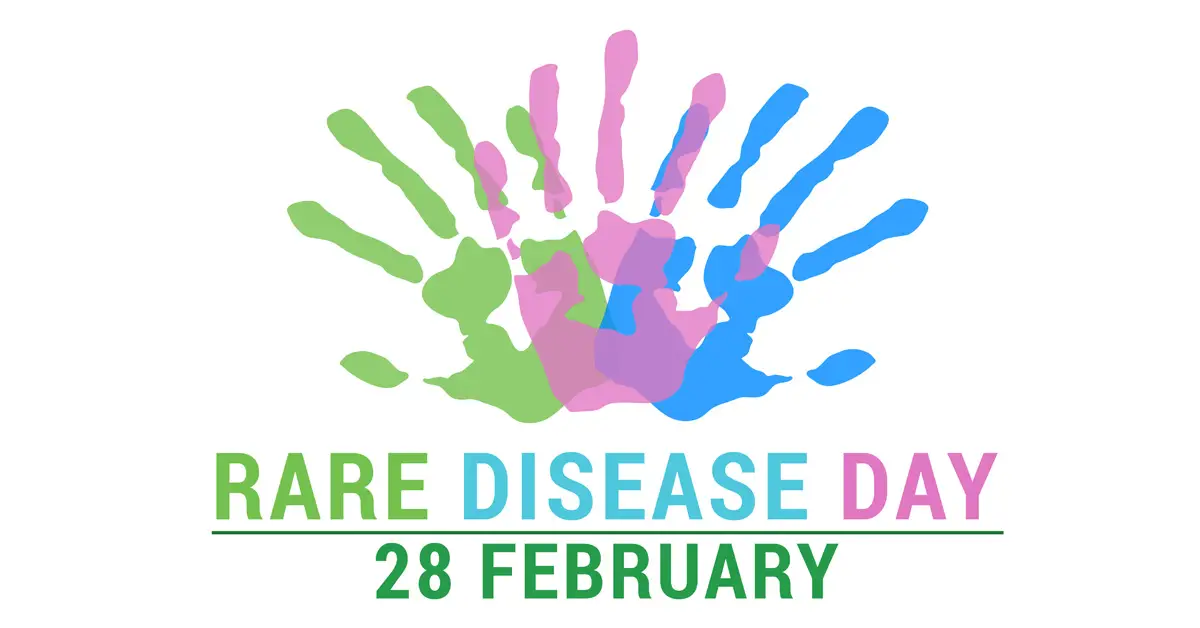
Sophia McCarthy
Operations Manager
Rare Disease Day is observed annually on the 28th of February (or the 29th on a Leap Year—the rarest day of the year) and aims to increase “equity in social opportunity, healthcare, and access to diagnosis and therapies for people living with a rare disease.”
The campaign was started in 2008 and is coordinated by EURORDIS (Rare Diseases Europe), a non-profit organisation consisting of 74 countries working together to improve the care and quality of life for 30 million people living with rare diseases.
What Is A Rare Disease?
A disease is categorised as rare when it affects fewer than 1 in 1,000 people. Due to lack of scientific knowledge and a large diversity of disorders and symptoms, rare diseases can come with increased difficulty in accessing medical expertise, effective care and even early diagnosis. There can often be misdiagnosis and increased financial stress as families and patients struggle to obtain clear answers. This is why research and information needs to be international so that medical experts and families are connected and informed. An extensive list of rare diseases can be viewed on the GARD (Genetic and Rare Diseases Information Centre) website, which we will link at the end of this blog.
Can Rare Diseases Be Detected During Pregnancy?
Advances in modern medicine—particularly in prenatal testing—have provided parents-to-be with the opportunity to detect some conditions and rare diseases at an early stage in pregnancy. This provides valuable time to prepare for the baby’s arrival and any special healthcare that may be required. This can be accomplished using a method of screening called Non-Invasive Prenatal Testing, or NIPT.
What is Non-Invasive Prenatal Testing (NIPT)?
Until very recently, prenatal diagnosis was only possible through more invasive methods—such an amniotic fluid sampling—that due to their invasiveness, carried a small risk of miscarraige. Thankfully, advances in molecular studies have led to new, safer methods, such as NIPT.
NIPT—which is becoming increasingly popular in our clinics—is a diagnostic test that can detect a genetic disease with high accuracy. This method utilises blood testing to analyse cell-free foetal DNA circulating in the mother’s blood. This simple blood test must be performed in conjunction with a dating ultrasound.
What Rare Diseases Can NIPT Detect?
NIPT can detect certain rare diseases, such as Edward’s syndrome and Patau syndrome (trisomies 18 and 13), as well as X and Y chromosome conditions. It can also test for Down Syndrome—which is not classified as a rare disease—as well as many other conditions. NIPT has a high accuracy for assessing foetal trisomy risk. It identifies more than 99% of foetuses with trisomy 21, 98% of foetuses with trisomy 18, 80% of foetuses with trisomy 13, and 96% of foetuses with Turner Syndrome in singleton pregnancies. If patients would like to know the gender of their baby earlier than 16 weeks, this can also be determined with 99% accuracy. A full list of what we can screen for can be found on our NIPT page by clicking this link HERE.
Please note that if the results of the test show high risk for one of the conditions it does not mean that the foetus definitely has the condition, although it is highly likely.
How Do I Arrange an Appointment for NIPT?
The Ultrasound Suite provides this screening alongside Bray Women’s Health Centre. This means that testing can only be arranged by calling Bray Women’s Health Centre on 01 276 1522. They will advise the best dates to schedule your bloods and ultrasound. The optimal date for testing will also depend on the package you choose. Our Harmony testing can be performed from 10 weeks, while our Panorama option can be performed from 9 weeks. The ultrasound element can be performed up to two weeks in advance of your blood test, or preferably, on the same day.
Due to the time-sensitive nature of NIPT, we advise booking well in advance as due to increasing demand, there is often a waiting list of two to three weeks.
If you would like more information on anything covered in this post, you can get in touch via info@theultrasoundsuite.ie, or send us a message on our Facebook page, and we will get back to you as soon as possible. Our website www.theultrasoundsuite.ie also provides a wealth of information on our various scans and prices.
Helpful Resources
GARD List of Rare Diseases: https://rarediseases.info.nih.gov/diseases/browse-by-first-letter/0-9
Rare Disease Day: https://www.rarediseaseday.org/
NIPT: https://www.theultrasoundsuite.ie/maternity/non-invasive-prenatal-testing-nipt.html
EURODIS: https://www.eurordis.org/
Prenatal Diagnosis of Rare Diseases: https://www.clinicallabmanager.com/trends/prenatal-testing/prenatal-diagnosis-of-rare-diseases-the-dawn-of-non-invasive-methods-215
